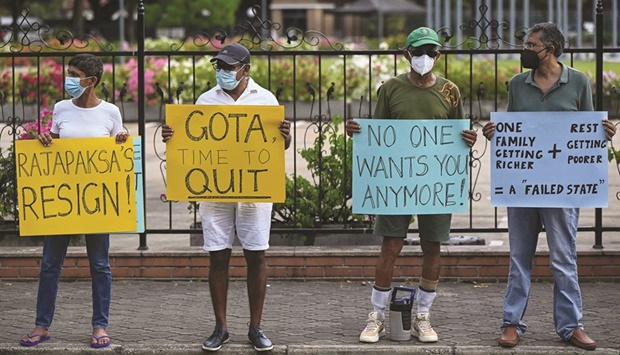Sri Lanka’s government imposed a weekend curfew yesterday, even as hundreds of lawyers urged President Gotabaya Rajapaksa to revoke a state of emergency introduced following unrest over fuel and other shortages in a deep economic crisis.
The government’s information department said a countrywide curfew would run from 6pm (1230 GMT) since yesterday to 6am (0030 GMT) tomorrow. Rajapaksa introduced a state of emergency on Friday, raising fears of a crackdown on protests.
Emergency powers in the past have allowed the military to arrest and detain suspects without warrants, but the terms of the current powers are not yet clear. The Indian Ocean island nation of 22mn people is grappling with rolling blackouts for up to 13 hours a day as the government scrambles to secure foreign exchange to pay for fuel and other essential imports..
“People take to the streets when things are impossible,” 68-year-old Colombo shop owner Nishan Ariyapala told Reuters TV. “When people take to the streets the political leaders of the country must act thoughtfully.” Rajapaksa said the state of emergency was needed to protect public order and maintain essential supplies and services.
Angered by the shortages of fuel and other essential items, hundreds of protesters clashed on Thursday with police and the military outside Rajapaksa’s residence as they called for his ouster and torched several police and army vehicles.
Police arrested 53 people and imposed a curfew in and around Colombo on Friday to contain other sporadic protests.
Shops opened and traffic was normal yesterday, while police remained stationed at some petrol stations. “There has been a failure to understand the aspirations of the people and to empathise with the suffering of the people of the country,” the lawyers, members of the Bar Association of Sri Lanka, said in their appeal, adding that freedom of speech and peaceful assembly should be respected.
Reacting to the state of emergency, US ambassador to Sri Lanka Julie Chung said: “Sri Lankans have a right to protest peacefully — essential for democratic expression.

Sri Lanka protestors


